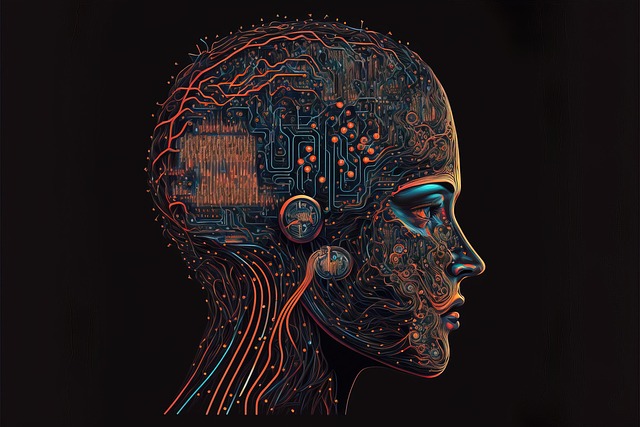Is AI the False Savior of Our Hollowed-Out Economy?

Published: 2025-09-07 10:00:00 | Category: Trump GNEWS Search
The current narrative surrounding AI is often framed as a technological revolution poised to save a struggling economy. However, a deeper examination reveals that the hype surrounding AI is an illusion, driven by a status quo desperately clinging to an unsustainable economic model. This article explores the complex interplay between AI, economic incentives, and the stark realities faced by the majority of the population.
Last updated: 24 October 2023 (BST)
Key Takeaways
- AI is perceived as a saviour for a declining economy, but this belief is misguided.
- The US economy is burdened by decades of financial mismanagement and asset bubbles.
- AI deployment is driven by perverse incentives that benefit the wealthy at the expense of the majority.
- The failure of AI projects is widespread, with 95% of generative AI initiatives not succeeding.
- Real economic stability requires addressing the root causes of inequality and the bubble economy.
The Illusion of AI as a Saviour
At the heart of the AI hype is the belief that it will revive a stagnant economy. This narrative suggests that AI technologies will usher in a new era of productivity and wealth creation. However, this perception ignores the underlying issues that have plagued the economy for years. The reality is that AI cannot fix a fundamentally flawed system that has been built on a foundation of debt and asset bubbles.
The Economic Context: A Tale of Asset Bubbles
The last two decades have been characterised by a series of financial innovations that have ultimately led to economic instability. The subprime mortgage crisis of 2008 serves as a stark reminder of how financial mismanagement can wreak havoc on the global economy. Instead of addressing the root causes of the crisis, policymakers chose to rescue the very institutions that perpetuated the fraud, leading to a cycle of moral hazard.
Zero interest rate policies (ZIRP) and quantitative easing have been implemented to stimulate the economy, but these measures have primarily benefited the wealthiest individuals. As asset prices soared, the wealth gap widened, leaving the bottom 90% struggling to keep up.
AI: A Tool for the Few
As AI technologies gain traction, they are often marketed as the solution to economic woes. However, the incentives driving AI deployment are skewed towards enriching a small elite rather than fostering genuine economic growth. Companies are incentivised to use AI to cut costs, automate jobs, and increase profits, often at the expense of their workers.
This trend raises critical questions about the future of labour in an AI-driven economy. While proponents argue that AI will create new jobs, the reality is that many positions are being rendered obsolete. The narrative of AI as a job creator is overshadowed by the reality that it often replaces existing jobs with little regard for the displaced workforce.
The Consequences of AI Deployment
The rush to adopt AI technologies has led to a plethora of challenges that are often overlooked. From privacy concerns to the degradation of critical thinking skills, the negative implications of AI are becoming increasingly apparent.
Failures in AI Implementation
Despite the hype, a significant number of AI projects fail to deliver the promised results. A recent report found that approximately 95% of generative AI pilots at companies do not succeed. This high failure rate highlights the disconnect between expectation and reality, raising concerns about the viability of AI as a long-term solution.
Moreover, the use of AI has led to new security risks, particularly in the realm of data privacy. Large language models (LLMs), while powerful, come with inherent vulnerabilities that can be exploited by malicious actors. The potential for AI to exacerbate existing issues rather than resolve them cannot be ignored.
The Social Impact of AI
The societal implications of AI are profound. As individuals increasingly turn to AI for companionship and assistance, there is a growing concern about social isolation and mental health. The phenomenon of AI addiction—where users become dependent on digital interactions—can lead to a decline in real-world social connections.
Additionally, the rise of AI-generated content has led to an overwhelming amount of misinformation. The ease of creating deepfake videos and other deceptive materials has made it more challenging for individuals to discern fact from fiction, further eroding trust in media and institutions.
AI: A False Promise
While the promise of AI is alluring, it is essential to recognise that it is not the solution to the systemic problems plaguing the economy. The current model is heavily reliant on the creation of artificial wealth through asset bubbles, which ultimately benefits only a select few. The notion that AI will somehow rectify these imbalances is a dangerous fallacy.
Instead of relying on AI as a saviour, it is crucial to confront the underlying issues that have led to the current economic predicament. This includes addressing wealth inequality, the fragility of the financial system, and the consequences of a bubble-dependent economy.
What Comes Next?
The future of the economy hinges on the choices we make today. Policymakers face a critical juncture: they can either continue to inflate asset bubbles in the hope of a miracle solution or confront the uncomfortable truths about the economy's structural flaws.
The need for genuine reform is urgent. This means moving away from reliance on artificial wealth and focusing on sustainable economic practices that benefit the broader population. Only by addressing these root causes can we hope to build a more equitable and resilient economy.
FAQs
What is the main issue with current AI deployment?
The primary issue is that AI deployment is driven by perverse incentives, focusing on profit for a select few rather than addressing broader economic challenges.
Why do so many AI projects fail?
Approximately 95% of generative AI pilots fail due to unrealistic expectations and a lack of understanding of the technology's limitations.
How does AI impact the job market?
AI often leads to job displacement as it automates tasks, creating concerns about unemployment and the future of work for many individuals.
What are the social consequences of AI addiction?
AI addiction can lead to increased isolation and mental health issues, as individuals may prefer digital interactions over real-world connections.
Is AI truly a solution for economic inequality?
No, AI is often presented as a solution, but it tends to reinforce existing inequalities rather than resolve them, benefiting the wealthy primarily.
As we navigate these complex issues, it’s crucial to remain vigilant and critical of the narratives surrounding AI and its potential impact on our economy and society. The future depends on informed choices that prioritise genuine value and equity over fleeting illusions. #AIEconomy #WealthInequality #FutureOfWork



